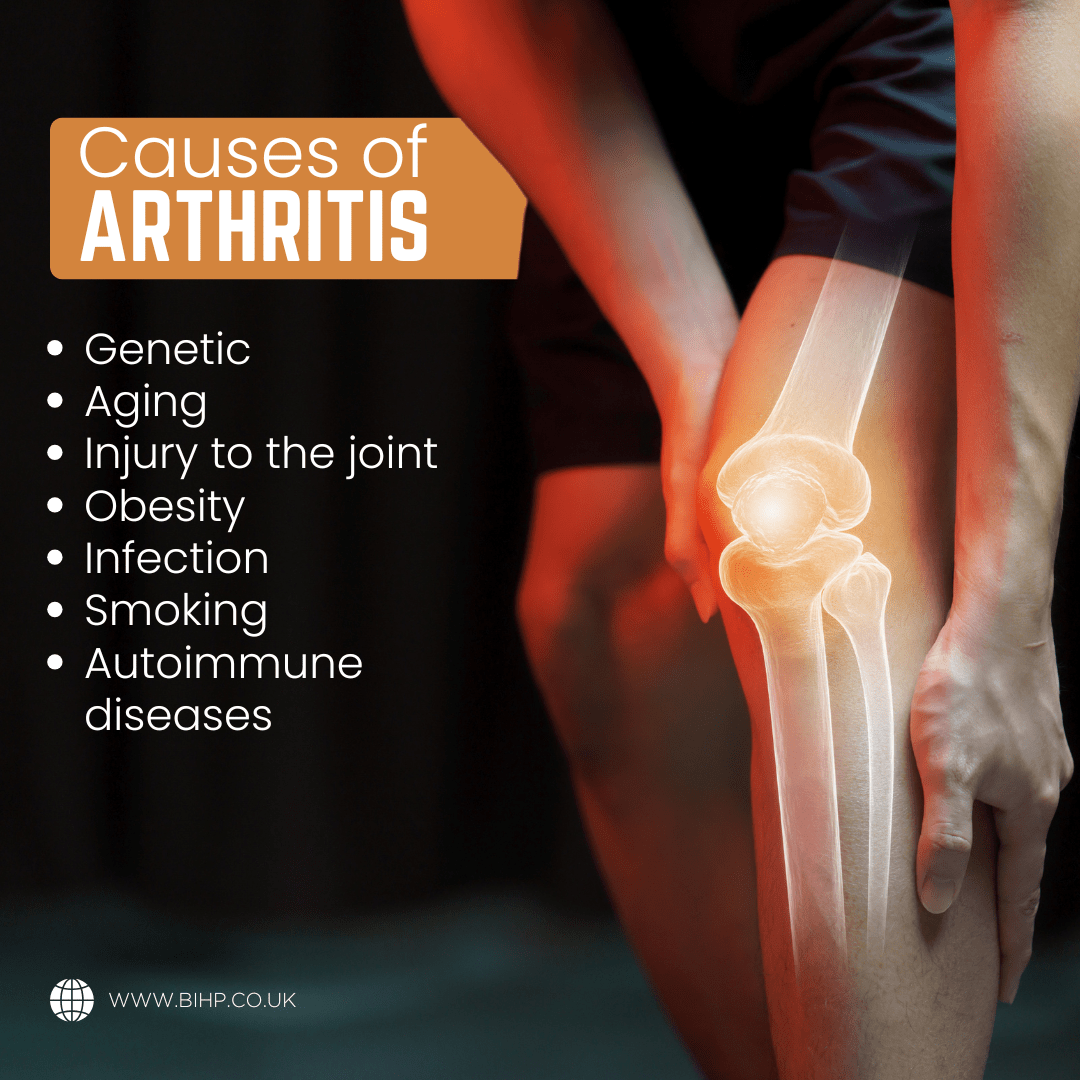Is Arthritis Genetic? Unpacking the Truth and Exploring Holistic Solutions

Let’s cut straight to it—arthritis can feel like a curse handed down through generations. You might have heard your parents groan about stiff knees or seen a grandparent’s knuckles swell over time. Now you’re wondering: Is arthritis genetic? The answer isn’t a simple yes or no, but rather a mix of biology, lifestyle, and even ancient medicine.
Arthritis isn’t just about getting older. It’s a condition shaped by your genes, yes—but also by your habits, environment, and how you treat your body. Interestingly, cultures around the world have used holistic treatments for centuries to manage and even prevent joint inflammation. What’s amazing is that modern science is finally catching up and proving some of those age-old remedies actually work.
So in this article, we’re diving deep into the genetic side of arthritis and the powerful world of holistic healing. We’ll explore how DNA plays a role, what natural therapies can do, and how you can take charge—especially if arthritis runs in your family.
Is Arthritis Genetic – Understanding Arthritis and Its Many Faces
What Exactly Is Arthritis?
Arthritis is often lumped into one single category, but it’s far from a one-size-fits-all condition. It’s a general term that refers to inflammation of the joints, and there are over 100 types. The core symptoms? Pain, stiffness, swelling, and reduced mobility. But the cause and progression vary dramatically depending on the type.
Some forms, like rheumatoid arthritis, are autoimmune diseases. Others, like osteoarthritis, come from wear and tear. There’s even psoriatic arthritis, which links to skin issues, and gout, which flares up due to uric acid buildup.
Regardless of the type, arthritis tends to worsen with age. But it’s not just a matter of time. Genetics, lifestyle, diet, injuries, and even stress can all play a role.
Did you know? In the UK, more than 10 million people live with arthritis. That’s nearly one in six people! And it’s not just affecting pensioners. Younger adults and even children can be diagnosed with arthritis, which makes understanding its root causes even more vital.
https://pmc.ncbi.nlm.nih.gov/articles/PMC3655138/
Is Arthritis Genetic – Common Types of Arthritis You Should Know
Let’s break it down into the most common types you might encounter:
-
Osteoarthritis (OA): This is the “wear and tear” version. It’s where the cartilage that cushions your joints breaks down over time.
-
Rheumatoid Arthritis (RA): An autoimmune condition where your immune system attacks your own joint lining.
-
Psoriatic Arthritis: Linked to psoriasis, this causes both skin lesions and joint inflammation.
-
Gout: Caused by a build-up of uric acid crystals, this can come on suddenly and painfully—often in the big toe.
-
Ankylosing Spondylitis: A type of arthritis that mainly affects the spine and is highly genetic.
Each type behaves differently, and not all are purely genetic. But many do have a hereditary component—which is where we’re heading next.
Is Arthritis Genetic – The Genetic Blueprint Behind Arthritis
How Genes Shape Our Health
Think of your genes as the instruction manual for your body. They dictate everything from your eye colour to how your immune system responds to invaders. Some genes can even make you more prone to chronic conditions—including arthritis.
But here’s the twist: having a gene doesn’t mean you’re destined to get arthritis. It simply means your risk is higher, especially if that gene gets “activated” by environmental factors like stress, diet, or toxins.
For instance, if your DNA includes a mutation in the HLA-DR4 gene, you’re more likely to develop rheumatoid arthritis. Likewise, the GDF5 gene is associated with osteoarthritis. These genetic markers don’t guarantee disease, but they do tip the scales.
Add to this the concept of epigenetics, where lifestyle choices can actually switch genes on or off. This is where holistic health comes into play. Just because something runs in your family doesn’t mean you can’t change your story.
Arthritis is often influenced by a mix of genetics, lifestyle, and environmental factors, which is why understanding the bigger picture matters. If you’d like to explore practical ways to support joint health and overall physical balance, our physical wellbeing content looks at everyday approaches that encourage comfort, mobility, and long-term resilience.
Is Arthritis Genetic – The Difference Between Inherited and Triggered Conditions
Inherited means it’s passed down from your parents directly through DNA. But arthritis isn’t typically a black-and-white inherited disease. It’s more like you inherit the tendency or susceptibility to develop it.
Let’s look at a quick comparison:
| Inherited Disease | Genetic Arthritis Risk |
|---|---|
| Predictable | Unpredictable |
| Caused by one gene | Multiple gene interactions |
| Happens even without triggers | Needs environmental/lifestyle triggers |
| Rare | Common |
For most people, arthritis develops through a combo of genetic risk and lifestyle choices. Smoking, poor diet, obesity, and repetitive motion injuries can all “wake up” those dormant genes.
Is Arthritis Genetic – Is Arthritis Passed Down in Families?
How Likely Are You to Inherit It?
If someone in your immediate family has arthritis—especially autoimmune types like RA—you do have a higher-than-average chance of developing it too. Studies show:
-
First-degree relatives of people with RA are 3 to 5 times more likely to develop the condition.
-
If your parents had OA, you’re more likely to experience early-onset joint pain.
That said, arthritis doesn’t always pass directly from parent to child. You might be genetically predisposed, but it still takes external triggers to fully develop the condition. That’s where holistic care and preventative habits become powerful allies.
Family History vs. Environmental Influences
Let’s say you inherited the genes for arthritis. What next? You have two paths:
-
Ignore it and let poor diet, inflammation, and stress take over, increasing your chances.
-
Get proactive, use holistic strategies, and possibly never experience severe symptoms.
You might be surprised to know that countries like India and China, where traditional medicine systems have been practised for centuries, report lower arthritis disability rates. Coincidence? Not quite.
Herbs like Ashwagandha, Boswellia, and Turmeric—commonly used in Ayurveda—have strong anti-inflammatory properties. Traditional Chinese Medicine uses acupuncture and herbal blends that reduce pain and boost immune balance. Science is now validating what these ancient systems knew all along.
Holistic Approaches Rooted in Tradition and Science
Ayurveda and Herbal Remedies
Ayurveda, the ancient Indian system of medicine, views arthritis as an imbalance in bodily energies or “doshas.” The approach isn’t just about treating symptoms—it’s about restoring balance.
Some standout Ayurvedic herbs include:
-
Turmeric (Curcumin): Potent anti-inflammatory. Studies have shown it works as well as ibuprofen in reducing joint pain.
-
Ashwagandha: Adaptogenic herb that reduces inflammation and improves immune response.
-
Boswellia Serrata (Indian Frankincense): Blocks the formation of inflammatory leukotrienes, helping reduce swelling and stiffness.
Unlike synthetic drugs, these herbs often come with fewer side effects and long-term health benefits. When paired with a dosha-specific diet, they can significantly slow arthritis progression.
Final Thoughts
While genetics can play a role in arthritis, it’s not the whole story. Remember because it runs in your family that doesn’t mean you’re guaranteed to develop it. Your daily choices—what you eat, how you move, how you handle stress—can make a real difference.
That’s where holistic approaches come in. Remedies like turmeric, yoga, acupuncture, and herbal supplements have been used for generations and are now backed by modern research. They offer gentle, natural ways to support your joints and keep inflammation in check.
In short, your genes might load the gun, but lifestyle pulls the trigger. Whether you’re trying to prevent arthritis or manage existing symptoms, blending traditional wisdom with modern understanding could be the key to staying mobile, comfortable, and in control.
FAQs
Can holistic remedies really prevent arthritis if it runs in your family?
They won’t change your genes, but they can lower your risk by reducing inflammation and supporting joint health naturally.
What herbs or natural medicines are scientifically proven to help arthritis?
Turmeric, Boswellia, ginger, and omega-3s have shown strong results in easing joint pain and swelling.
Is arthritis always genetic or can it just develop later in life?
Not always genetic. Many people develop arthritis due to wear and tear, injuries, or lifestyle factors.
How do I combine genetic testing with natural treatment?
Speak to your GP or a specialist to assess your risk, then create a plan that includes both conventional care and trusted natural therapies.
Which holistic therapy is best for chronic joint pain?
A mix of natural supplements, gentle exercise like yoga, and stress reduction techniques often works well for many people.
We hope that you found the article helpful and gave you a deeper understanding of this menace. We are more for the holistic approach here, Ultimately that decision stays with the reader.
Here are a few more articles you may well find of interest.
Health Facts – Surprising Benefits of Nicotine Backed by Science




